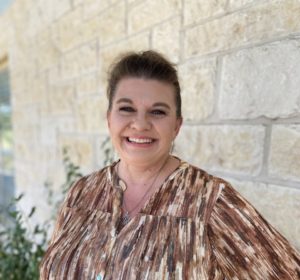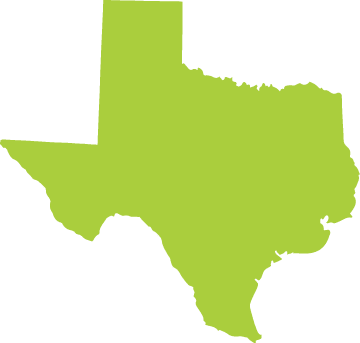 Denise Usener, Executive Director
Denise Usener, Executive Director
The Golden Hub Community Center in Fredericksburg
Published November 2021
Tell me a little bit about your organization.
Golden Hub Community Center started in Fredericksburg 1977 in the basements of small churches. In 1982, we moved to our current location, and within 6 months, we owned the building. Although we offer several programs, Meals on Wheels is one of our most important programs, serving 125 clients a day. Golden Hub also offers congregate and curbside meals currently to 80 clients a day.
What are you most proud of?
When I started working at Golden Hub, there was a stigma about coming to the center – no one wanted to come Over the years, we have worked on our image. The center has become an important part of our community. People know us, trust us, and want to be a part of what we do. We are now the place to go for seniors.
What is your role at your organization?
My title is Executive Director, but I kind of do everything. We are a team of nine – and we all pitch in wherever we are needed. We are a great team. I also see myself as a great advocate for our center and our programs.
Describe a challenge you have faced at your organization in the past year.
Covid. Everyone has faced this challenge over the past year. We’ve done well handling the tremendous challenges. When we shut down in March of 2020, we changed gears and the next day were offering pick up instead of congregate meals. Through the grants offered by Meals on Wheels Texas, we were able to deal with the new extra costs we faced. We had to release all our volunteers and our staff picked up and delivered meals for 6 months. It was a challenge and tough on our staff, but they were troopers. Ultimately, we wanted to make sure people were taken care of.
What motivates and sustains you in your role?
Of course, it’s the people. I’ve been working at the center for twenty-one years, so I’ve become close with the clients who come in every day. On the Meals on Wheels routes, you see the need out there, and you know you might be the only person they see that day. They’ve become family; it motivates me to do the best I can and to offer what they need.
Have you received any grants or resources recently through MOWT?
During Covid-19, we have received two grants through our Meals on Wheels Texas Membership: the HEB grant and a smaller census grant. We also received masks through a PPE donation coordinated by the Association.
How have you benefitted from being in a network of support with your peers?
- I remember that HHS had sent out a data use and privacy policies notice – and the members of MOWAT developed information to share with members. Also, in our regional coalition, we developed organizational policies together in a one day meeting.
- We share policies with each other all the time. We say: ‘just change the name on it and make it work for your organization.’
- When we run into HR issues, we can always ask each other for help and support.
Through learning opportunities, have you learned any new best practices for your organization?
We have borrowed some ideas to improve policies: so and so is doing this, and we are going to try it. It’s changed efficiencies.
Why should an organization join Meals on Wheels Texas and Meals on Wheels Association of Texas?
- Network of Support – to form good and lasting relationships with your peers.
- Training Opportunities – to improve operations and see what’s out there.
- Best Practices – to learn more each day about how to improve your program.
- Funding and Resources – to receive grant and other opportunities.
What is your vision to address hunger and loneliness among older adults and people with disabilities in Texas?
It’s more than a meal. It’s addressing socialization and loneliness, health, and access. For each organization, it’s about forming relationships in your own community and building trust. You sort of become an iconic figure in your community.
As a statewide network of providers, it’s about all of us working together to figure out the best way to provide support to the people in our communities. We need to harness our collective strength to provide for people who need the services. We really are stronger together. Together, we can reach the people who most need support.

